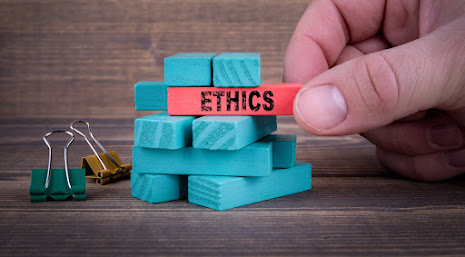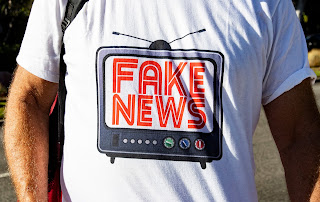Raaya Cummings
raaya.cummings@gmail.com
It can be argued that journalists lack ethical principles. As a result, they should not be trusted. However, where misunderstanding goes, misconception often follows. As critical thinkers try to define the lines of ethics many journalists cross them without any intention or prior knowledge of even doing so.
Without much consideration, some may agree that when discussing ethics, there are many basic absolutes in this world. If you steal you should be punished and if you take a life, even more so. On the contrary, when taking a moment to consider the circumstances of one's actions, others may disagree. What if what had been initially written off as a heinous deed was actually a feat of protection? Or, what if the altercation was at the fault of the victim? Suddenly, the road to determining what is right or wrong becomes a little longer.
Although on a typically smaller scale than theft or homicide, our everyday decisions are often based on ethical and moral principles. Throughout history, philosophers have been able to agree on the simple definition of ethics but not always on its implication. This is most at fault for the way our actions affect the world around us.
Reinhold Niebur, American theologian, stresses that moral behavior must be seen in the context of how our behavior affects others, the complex web of actions and interactions that make up human society (Moral Reasoning for Journalists E2). Many of us may find it easy to agree with Niebur concerning the relation of ethical reasoning and communal interactions. Yet, if every society is different, with their own evolving norms and general practices, do their ethical principles differ too?
This is the conversation between those who believe in ethical relativism (the theory that holds that morality is relative to the norm's of one's culture) and those who oppose. If true, there would be no moral standards to be applied universally, and every society would decide right or wrong for themselves. As a result of this dangerous scenario, the majority of ethicists do not actually agree with this theory and there are a few different reasons as to why.
Some argue that there is a distinction between general moral grounds and the interpretation of how they should be practiced. While others believe no one theory can be applied to every ethical decision. For example, doctors doing everything they can in order for their patients to feel better would be a moral principle upheld in every society. However, if assisted-suicide stops a patient from chronic suffering, then does that make it the moral decision?
The conversation of the boundaries of ethics could last decades, just as it already has. Sometimes, right and wrong are not always so clear and other times what's right for some is wrong for others. This is not to be an excuse for poor ethical tactics but rather a defense to the world of journalism as a whole. While some journalists may work in the shadows of bias or greed, it's important to understand that journalism within itself is not unethical and not all journalists who make the seemingly unethical decision did so with such intent.











